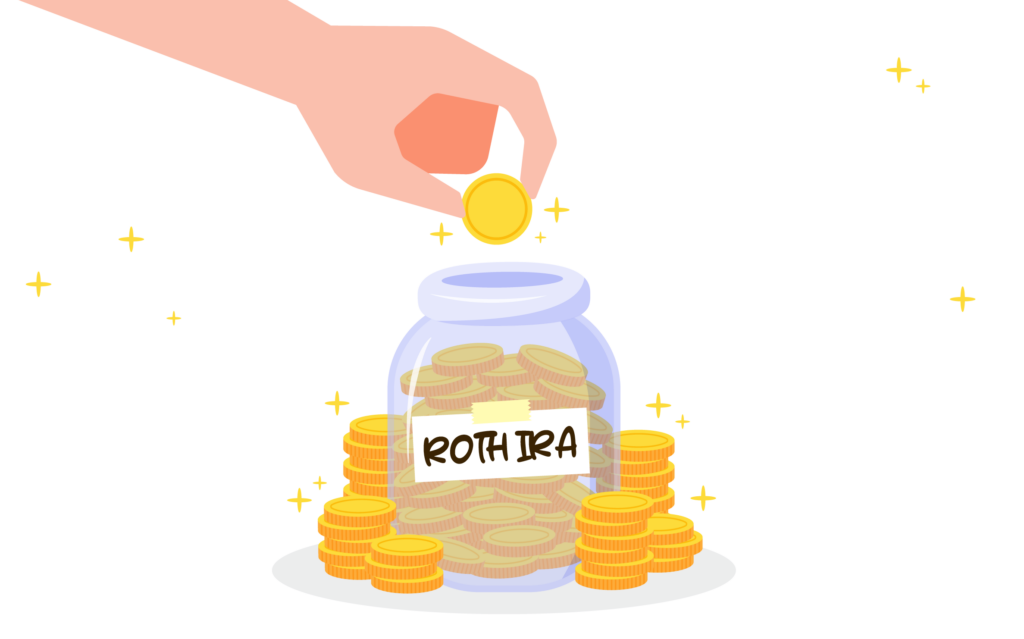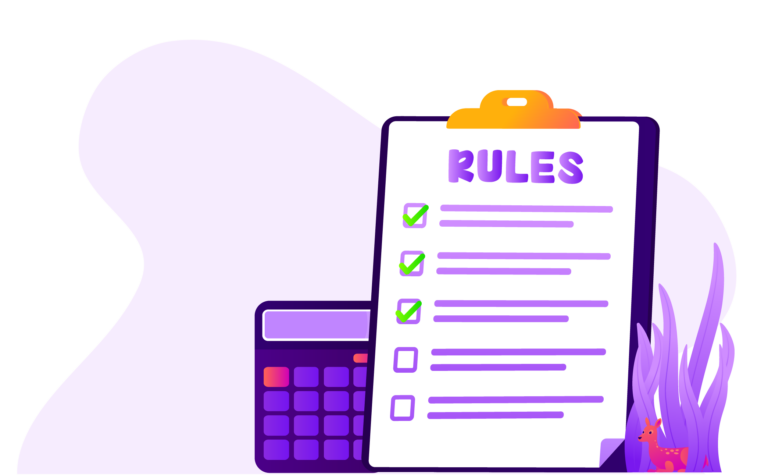
Self-Directed Roth IRA
If you establish your Roth IRA at a trust company, such as IRA Financial Trust, you can self-direct your Roth IRA. With a Self-Directed Roth IRA, you can still make tax-free investments, but your scope of investments is no longer limited to just traditional investments; you can also make alternative investments, like real estate and cryptocurrency, with a Self-Directed Roth IRA – tax-free.
Roth IRA vs. Self-Directed Roth IRA
A Roth IRA allows IRA holders to enjoy tax-free distributions. This is because the Roth IRA was funded with after-tax dollars, meaning you don’t receive an upfront tax-break, but all income and gains on your investment will be tax-free when you take a qualified distribution (in order for a Roth IRA distribution to qualify, the IRA must be opened for at least five years, and the IRA holder must be age 59 1/2 or older).
Many retirement investors use their Roth IRA to purchase traditional investments, like stocks, bonds, CDs, mutual funds, and the like. The breadth of investments you can make with your IRA is typically determined by the company that holds the account. For example, if your Roth IRA is held by a bank or financial institution, you will most likely only be limited to making tax-free traditional investments.
Key Points
- A Self-Directed Roth IRA allows retirement investors to make traditional and alternative investments.
- If you wish to make alternative investments, like real estate, establish your account at a Trust site – not a bank or financial institution.
- Alternative investments are growing in popularity due to the volatile stock market.
The Self-Directed Roth IRA
If you establish your Roth IRA at a trust company, such as IRA Financial Trust, you can self-direct your Roth IRA. With a Self-Directed Roth IRA, you can still make tax-free investments, but your scope of investments is no longer limited to just traditional investments; you can also make alternative investments, like real estate and cryptocurrency, with a Self-Directed Roth IRA – tax-free.
The Popularity of a
Self-Directed Roth IRA
A Self-Directed Roth IRA is popular because investors are able to make almost any type of investment, including traditional investments if they wish to do so.
A Self-Directed IRA can be either Roth or traditional. With a Self-Directed IRA, you decide what types of investments to make. Additionally, you determine when you want to buy and sell. All decisions are truly yours, hence the name “self-directing.”
With a Self-Directed Roth IRA, if you qualify to make contributions, all distributions are tax-free. This includes the investment returns as long as the distributions meet certain requirements. Unlike a traditional IRA, you can contribute to a Roth IRA as long as you earn income. With a traditional IRA, you can’t make contributions after you reach 73.
Read More: Types of Self-Directed IRAs
Self-Directed Roth IRA Investments
You can make almost any type of investment with a Self-Directed Roth IRA. The only investments that you cannot make are those the IRC prohibits, which are very few. Find out the prohibited investments with a Self-Directed Roth IRA.
The primary advantage of using a Self-Directed IRA is the ability to make alternative asset investments. The term “alternative assets” generally includes any non-traditional asset class. It covers investments that do not trade publicly on an organized exchange. This includes investments outside of public stocks, bonds, money markets or cash.
Typically, alternative investments are complex, illiquid, and more difficult to value than traditional assets. They usually offer the opportunity to earn investment returns in excess of those generally available in the traditional financial markets.
So if you dislike the obligatory investments in stocks or mutual funds, or you have an investment that you want to actualize with your Roth IRA funds, then the Self-Directed Roth IRA LLC is your solution.
Read More: What are Alternative Assets?
Learn More: Importance of Investment Diversity

Popular Investments in a
Self-Directed Roth IRA
A Self-Directed Roth IRA offers one the ability to use his or her retirement funds to make almost any type of investment on their own without requiring the consent of any custodian or person tax-free! The IRS only describes the types of investments that are prohibited, which are very few. Self-Directed Roth IRA investments can range from stocks and bonds to real estate and cryptocurrencies.
The following are some examples of Self-Directed Roth IRA investments:
- Residential or commercial real estate
- Domestic or Foreign real estate
- Raw land
- Foreclosure property
- Mortgages
- Mortgage pools
- Deeds
- Private loans
- Tax liens
- Private businesses
- Limited Liability Companies
- Limited Liability Partnerships
- Private placements
- Precious metals and certain coins
- Stocks, bonds & mutual funds
- Foreign currencies
The Self-Directed Roth IRA Solution
A Self-Directed Roth IRA gives you the best of both worlds. You receive the benefits of a Roth IRA, such as tax-free profits, tax deductions, asset protection and estate planning. But you also benefit from investing in assets you know and understand.
Aside from life insurance, collectibles and certain “prohibited transaction” investments, a Self-Directed IRA can invest in most commonly made investments.
The self-directed Roth IRA, similar to a Self-Directed IRA, allows the IRA holder to:
- Use the same Self-Directed Roth IRA to purchase domestic and foreign currencies, real estate, private mortgages, gold and stocks, bonds and mutual funds inside the same plan and generate profits tax-free.
- Purchase real estate foreclosures and tax liens on the spot or make personal loans by simply writing a check.
- Buy your retirement home now at today’s prices, rent it out, and then move in tax-free at the age of 59 1/2.
- Purchase a vacation home now at today’s prices anywhere in the world, rent it out, and then use it tax-free at the age of 59 1/2.
- Invest in an office building now at today’s prices, rent it out, and then move your business in tax-free at the age of 59 1/2.
Read More: What is Checkbook Control Self-Directed IRA?

Self-Directed Roth IRA Conversion Rules
- For tax years starting in 2011, the $100,000 modified adjusted gross income limit for conversions to Roth IRA is eliminated. Individual retirement accounts, or IRAs, exist in many forms. If you have an income from working for yourself or someone else, you may set up and contribute to an IRA. The major advantage of using a traditional IRA is that contributions are tax-deductible. However, a Roth IRA offers tax-free income and gains. Furthermore, you can use IRA funds for any purpose.
Conclusion
With a Self-Directed Roth IRA, as long as you qualify to make contributions, all of your distributions are tax-free. And what’s more, unlike a traditional IRA, you can continue to contribute to a Roth IRA as long as you earn income.
-
Establish a Self-Directed Roth IRA
Make a roth IRA contribution of up to $7,000 or $8,000 if over 50, do a rollover of roth IRA or roth 401(k) funds to fund your new account.
-
Roth IRA Conversion
Convert pre-tax IRA funds to Roth after you establish a Self-Directed Roth IRA. Conversion can be done with cash or in-kind assets, such as real estate. Pay income tax on the fair market value of the amount converted.
-
Invest in Your Self-Directed Roth IRA
Invest your roth IRA directly or even use a special purpose LLC to gain “checkbook control.” Invest in almost anything you want except life insurance, collectibles, or certain self-dealing transactions.
-
Build Tax Free Wealth
Generate tax-free wealth during your lifetime and/or leave a tax-free legacy for your family.
To learn more, please contact a Self-Directed IRA specialist at 800-472-0646.




